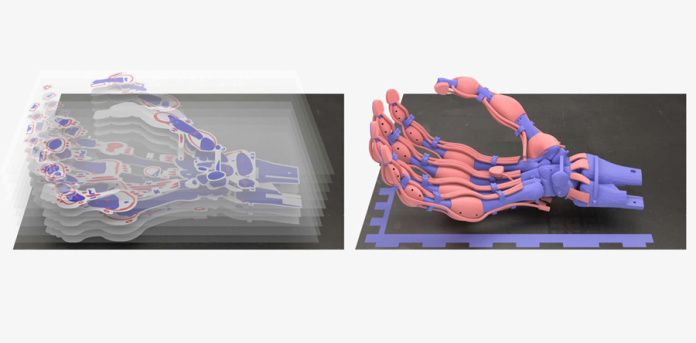Researchers at Penn State have developed a new 3D-printed material designed to advance soft robotics, skin-integrated electronics, and biomedical devices. This material is soft, stretchable, and self-assembled, overcoming many limitations of previous fabrication methods, such as lower conductivity and device failure. According to Tao Zhou, an assistant professor at Penn State, the challenge of developing highly conductive, stretchable conductors has persisted for nearly a decade. While liquid metal-based conductors offered a solution, they required secondary activation methods—like stretching or laser activation—which complicated fabrication and risked device failure.
Zhou explained that their method removes the necessity for secondary activation to attain conductivity. The innovative approach combines liquid metal, a conductive polymer mixture called PEDOT: PSS, and hydrophilic polyurethane. When printed and heated, the liquid metal particles in the material’s bottom layer self-assemble into a conductive pathway, while the top layer oxidizes in an oxygen-rich environment, forming an insulated surface. This structure ensures efficient data transmission to sensors—such as those used for muscle activity recording and strain sensing—while preventing signal leakage that could compromise data accuracy.
“This materials innovation allows for self-assembly that results in high conductivity without secondary activation,” Zhou added. The ability to 3D print this material also simplifies the fabrication of wearable devices. The research team is exploring various potential applications, focusing on assistive technology for individuals with disabilities.
The research, supported by the National Taipei University of Technology-Penn State Collaborative Seed Grant Program, included contributions from doctoral students Salahuddin Ahmed, Marzia Momin, Jiashu Ren, and Hyunjin Lee.








